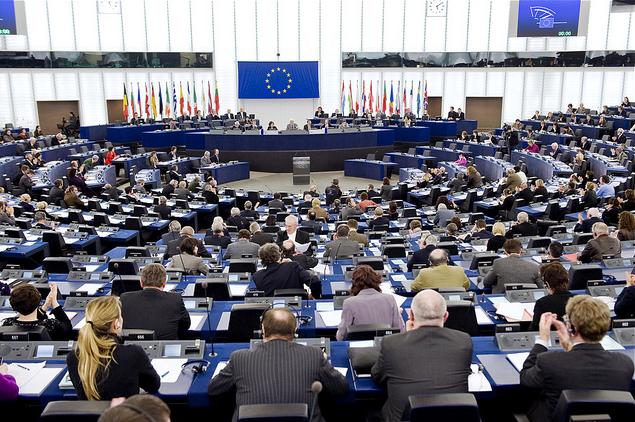Parliament’s TTIP vote in limbo

EurActiv | 4 June 2015
Parliament’s TTIP vote in limbo
Next week’s vote on the Transatlantic Trade and Investment Partnership (TTIP) is in question, after the Socialists and Democrats backed down from a deal with the European People’s Party.
At their meeting in Brussels on Thursday (3 June) the S&D group in the European Parliament reasserted their initial position, adopted last March, to exclude an arbitration clause from the deal.
Last week (28 May), after a fierce horse-trading between political parties that went into late into the night, the European Parliament’s Committee on International Trade adopted a non-binding resolution that gave the go-ahead to the European Commission on the EU-US trade agreement, conceding that a controversial Investor-State Dispute Settlement, albeit reformed, would remain part of the deal.
"The S&D Group will not accept any kind of private arbitration. ISDS is definitely not the way forward. Both the United States and the European Union have reliable national courts which should be the regular procedure to solve any dispute,” said MEP David Martin, the S&D spokesperson on trade.
He insisted that the right of governments to regulate in the public interest must be "unambiguous, and the principle of equal rights between national and foreign investors must be safeguarded".
The S&D has joined forces with the Greens, who criticised the Socialist MEPs for having rowed in behind the centre-right last week, and ensured a tame and sanitised outcome, instead of voicing the growing concern among the European public over ISDS.
The Commission has not reacted yet. But the coming days will likely be a race against the clock to create a compromise. If not, MEPs might break the ranks of their political groups and vote along national lines.
The debate is expected to take place within S&D national delegations.
Analysts fear that a resolution rejecting ISDS might reopen the Pandora’s Box of the EU-Canada trade deal (CETA), which includes a ‘reformed’ ISDS clause.
But in its March position, the S&D underlined that for CETA, the situation is different compared to TTIP, as the negotiations have been concluded already.
“Nevertheless, we stress that these reforms are clearly insufficient to close the loopholes,” the paper read.
Thirteen parliamentary committees have given their opinion on TTIP, and all included ISDS, despite the growing public outcry against enabling corporations to use extra-juridical tribunals to challenge state authorities and national laws.
To ease such fears, the Commission proposed steps that can be taken to transform ISDS into a system which functions more like traditional courts. That involves the appointment of permanent arbitrators, with similar qualifications to those of national judges, and the introduction of a bilateral appeal system.
In parallel, the EU has called for the establishment of a permanent multilateral investment court with tenured judges, who would replace the bilateral mechanism over time.
MEPs seemed unimpressed with the Commission’s proposal, but they did in the end give it qualified support. However, the resolution is due to be put to a full plenary vote in the European Parliament in June.
“This resolution is the beginning of the end for ISDS, a development which is long overdue,” said S&D Trade Committee chair Bernd Lange last week after the committee’s vote.
It might be the end of ISDS as we know it in Brussels. Proposals might be coming in from member states on how they would break the deadlock, as France did recently.





